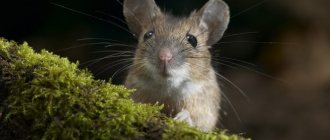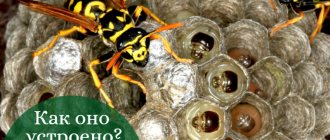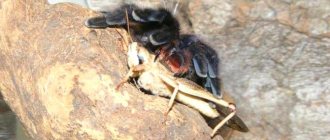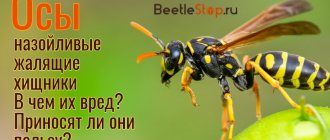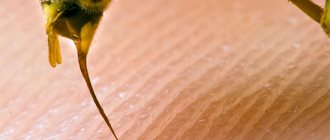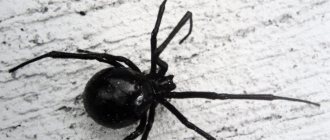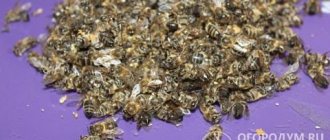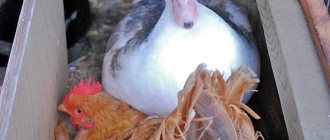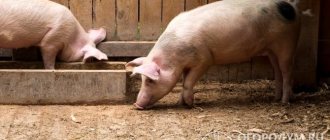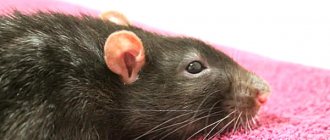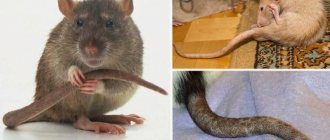Wasps, like bees, belong to the same family. Adults also feed on nectar and pollinate flowers, so the question arises: do they make honey? In our area, no one has heard of breeding the striped family for their own benefit. However, in the countries of Africa and Central America, this activity is typical for some species. Aspen honey differs from bee honey in quality, quantity, and beneficial properties.
Features of life
To find out whether wasps make honey, you must first figure out whether they need it. In most cases we are talking about adults. Adults feed on nectar, juices of ripe vegetables and fruits, but for the larvae they obtain protein food - spiders, flies, small insects, bees.
Wasps prefer to eat honey, but not make it. Many families attack bee hives, completely destroy the reserves at one time, and drag the “captives” to feed their larvae. Honey is not carried into the nest, so there is no honey as such in the honeycombs.
However, a small layer of sticky mass, reminiscent of a beekeeping product, accumulates on the walls of the cells. The question again is whether wasps make honey or not. Insects do not burden themselves with this mission; the coating occurs on its own, after the insect has been on the flower and feasted on the pollen.
Interesting!
In the countries of America and Africa there are several families of social wasps that collect honey and make it. But not in such numbers as usual bees, but only to feed themselves in the winter. To say that wasps do not make honey is also wrong.
Wasps and honey
It is also important that the wasps in our area do not hibernate in swarms. At the end of summer they leave the nest and fly away in different directions. With the onset of cold weather, metabolic processes in the body slow down, insects become slow and vulnerable. One part dies from natural enemies, the other from the cold. Only young fertilized females remain to spend the winter, whose mission will continue in the spring. In winter, insects fall into suspended animation - they simply sleep and do not need food supplies.
What does it taste like
Honey obtained from a wasp has a taste that is significantly different from the bee product. Aspen honey resembles sweet nectar with a distinct smell, obtained from flowers growing near their nests. Therefore, the taste of aspen honey product will vary depending on the habitat of the insects.
Aspen honey mass is nutritious and high in calories due to the presence of plant ingredients. But such a product does not contain specific enzymes, without which the main property of aspen honey – viscousness – is quickly lost. The crystallization process also starts quickly. But after crystallization and drying, the aspen product can still be eaten.
Features of wasp honey
If a child of primary school age makes honey from bees or wasps, he will confidently choose the former. This will be correct, since our wasps and honey are incompatible concepts. In tropical countries, children will answer differently, since local aborigines even deliberately destroy the hive to get delicacies.
Honey wasps of the species Polybia Occidentalis can produce, accumulate honey, and store honey in honeycombs for the winter. However, they are not able to produce in such large quantities as bees. They need the product so as not to die of hunger in winter.
Wasp honey is thick, viscous, has a different composition, but smells good. Most of the composition is pollen. It does not contain the useful enzymes that humanity is accustomed to - a huge amount of proteins and sugars. Doesn't taste as sweet as bee's. There is no point in breeding a wasp family for honey. Only local aborigines look for wasps, destroy nests, and take away their waste product.
Honey wasps of the species Polybia Occidentalis
Application
The aspen variety has no special purpose, although it is used in everyday life and in nutrition. Since it is inferior to bee in many respects, it is not very advisable to use it for health improvement.
It is most often used in cosmetology, for anti-aging creams and masks. The product contains antioxidants, useful components that smooth out wrinkles and give the skin elasticity, rejuvenating the face. You can make such a useful mask on your own by mixing a little wasp variety with olive oil and applying the mixture to your face for 20 minutes.
Now we know who makes honey besides bees. This information may also be useful for those who come across an exotic aspen variety in stores and markets. It should be taken into account that in Russia wasps harvest very little honey, only for food, so there will not be large harvests. You shouldn’t trust fakes; it’s better to buy honey from America or classic bee honey.
Benefit
Insects do not produce honey, but they can provide many benefits to humans through their vital activity.
The wasp family plays an important role, destroying a huge number of harmful insects, with which humans wage a merciless fight. If it is located in the corner of the garden, you should not touch it. Wasps kill flies, spiders, larvae, small insects, and large insects. They cope freely with mole crickets, beetles and their larvae, and bronze beetles.
Many solitary wasps lay eggs on the body of the larva of a large beetle, a spider. Within a few hours, a larva emerges from the egg, burrows into the victim’s body, and begins to eat it from the inside. Finally, it pupates, and after a while the imago emerges in the form familiar to humans.
Benefits of OS
On a note!
Tiny Spilomena troglodytes wasps destroy thrips. Many other species catch caterpillars of leaf rollers, moths, bugs, leaf beetles, cicadas, flies, horse flies, and weevils. The functions of a wasp are quite great even without honey - they pollinate plants and increase productivity.
How dangerous are wasps?
Wasps, along with being beneficial to plants, can cause harm. Let's look at how dangerous wasps are:
- Being near bees can lead to stings. Wasps can guard their nest quite aggressively; we have already discussed the harm from bee stings above.
- Wasps feed not only on insects or nectar, they do not disdain fruits with foulbrood, and also fly near cesspools. Therefore, wasps can become carriers of intestinal infections.
- In addition, wasps can spoil fruits in search of food.
- Hornets damage plants by gnawing on the bark.
Important: Despite the benefits of wasps, it is better to avoid being near them, especially if you have children. Restless children, while playing outdoors, may stumble upon a wasp's nest, and then trouble will inevitably arise.
Wasp poison and medicine
What is much more interesting for people is not honey, but... Relatively recently, scientists discovered the properties of the venom of the Brazilian wasp to stop the development of cancer cells and fight the oncology of certain organs. It is important that the poison does not affect healthy cells and does not interfere with their functioning.
The venom of the Brazilian insect contains a unique protein that interacts exclusively with pathological cells, causes their death, and promotes the restoration of the mucous membrane. The poison is effective against cancer of the blood, prostate, and bladder. The drug is sold through websites on the Internet, the cost of one capsule is about 9 thousand rubles.
Based on the data obtained, research continues to be carried out; there is great hope that it will be possible to create an effective cure for cancer and defeat the disease in a broad sense.
Is it possible to treat wasp stings?
Important: In alternative medicine there is a direction - apitherapy. This is a treatment by stinging a person with bees. As for wasps, stinging by wasps is not practiced.
This happens for several reasons:
- There is no practice in which beekeepers or apitherapists breed wasps for treatment.
- The harm from wasp stings is potentially greater than the benefit.
- Wasp stings are very painful for people.
If you or someone you know is offered treatment using wasp stings, do not believe such specialists.
If you are bitten by a wasp, you should take immediate action:
- The first thing to do is leave the scene of the wasp encounter.
- Second: apply a cold compress to the bite site.
- Third: take an antihistamine.
- Fourth: treat the bite site with a special ointment for insect bites, or relieve swelling using folk remedies.
It is important to know what not to do if you are stung by a wasp:
- Trying to kill a wasp increases the likelihood that it will sting you again.
- Do not squeeze out the sting, as this may allow the poison to enter the bloodstream.
- Do not scratch the bite site, as the poison will spread into the subcutaneous tissue.
The site of a wasp bite should not be scratched
How honey is made
Each bee has its own purpose. Honey is made from nectar. The process is gradual.
Stage 1: collecting nectar
The forager bee places the collected nectar in the honey sac and brings it to the hive.
Stage 2: Chewing
In the hive, the worker bee takes nectar from the forager and processes it with the help of her saliva.
Stage 3: Move
After the splitting process, the honey is transferred to the honeycomb.
Step 4: Cooking
The right amount of moisture is necessary for honey to cook. The bees flap their wings to create the desired consistency.
Stage 5: preparation
When the consistency is almost perfect, the honeycomb is sealed with wax and left to mature.
Beneficial features
Aspen honey is a product that has beneficial properties and contraindications, but it differs significantly from classic bee honey. It is very aromatic and fragrant. Its taste is quite unique. To a large extent it is nectar, consisting mainly of pollen.
It is known that the natural product contains a lot of fructose, which removes alcohol faster. It is also an excellent antiviral, antibacterial and antifungal agent. During storage, all vitamins and other useful elements are preserved.
Aspen honey is an allergen, so it should be used with caution.
The main beneficial property is the content of calcium, minerals, antioxidants and a large amount of proteins and sugars. But its nutritional value is not high enough, since it does not contain special enzymes that create the main characteristics of the product. Taking into account the fact that it is almost impossible to find such honey, in folk medicine you are unlikely to find useful recipes based on it and methods of using it.
In colloquial speech there is a stable phrase (phraseological unit) - “wasp honey”. The meaning is very similar to the saying “like milk from a goat,” which means something that is impossible to get.
Wasps are more interesting for obtaining poison than honey. Everything in our world has positive and negative qualities. As for the wasps themselves, despite all their harmfulness, they also bring a lot of benefits. But this is a benefit of a completely different nature. It has nothing to do with honey production at all. Yes, for most people these insects are very undesirable neighbors. Summer residents and gardeners are trying their best to get rid of wasp nests on their plots. But do not forget that wasps pollinate plants in the same way, even at lower temperatures than bees. This is useful? Yes. Destroy many harmful insects and their larvae. Is this also useful? Yes. The greatest benefit comes from insects of the Amorphilla species. They destroy caterpillars, get rid of flies, leaf beetles, and other insect pests.
For people, wasp venom turned out to be a more attractive product than honey. For example, the venom of the Brazilian wasp can kill cancer cells without affecting healthy ones.
The composition of wasp venom is similar to bee venom. It turns out that a wasp sting is also useful to some extent. If you are not allergic to bee stings, then you are not afraid of a wasp sting. True, numerous bites should still be avoided. Everything is good in moderation.
Traps
Considering the above points, it is not surprising that some beekeepers or ordinary summer residents have a desire to destroy wasps. The most common method of catching them is traps. Of course, you can buy them in a store, but their effectiveness will be much higher if you make them yourself. To make it, you need things that every summer resident has on hand, namely: a plastic bottle, scissors, tape or wire.
Important! Many standard insect traps do not work on wasps.
The procedure for making a trap:
- The top third of the bottle is cut off.
- A substance is placed at the bottom of the bottle that will attract wasps.
- The lid is twisted off the cut part.
- Then, the upper cut part of the bottle is turned upside down and inserted into the bottle tightly and secured (small holes can be made just above the level of the neck so that the smell from the bait spreads more efficiently).
If you plan to hang the trap, then make a handle at the top from tape or wire.
The principle of operation of the trap is very simple. Insects attracted by the smell fly to the trap, crawl inside it, and feast on the bait. Then they try to get out by crawling up the wall of the bottle. After many attempts, the insect rests on the junction of the bottle parts.
You can use something sweet as bait. You can pour water with sugar and add jam to the bottle. To improve the effectiveness of the trap, you can make the bait poisoned. To do this, acid or insecticide preparations are added to the finished liquid. They are inexpensive and last a long time. You can find them in specialized stores.
Alcoholic cocktail dessert
Experienced baristas know how to make “wasp honey” with their own hands. To do this, you need to beat four egg yolks and add them to a can of condensed milk. Continue using the mixer until the mixture is airy. After this, mix a spoonful of instant coffee with a very small amount of boiling water (so that the granules disappear). Stir in the milk-yolk mixture. Pour in a thin stream one hundred milliliters of alcohol (this dessert is eaten with a spoon) or a glass of vodka (the cocktail is served with a straw). Place the finished product in the refrigerator for an hour.
What attracts a wasp near a person?
- In the summer, wasps flock to the smell of sweets, fruits, sweet drinks, jam, and watermelons.
- Wasps also hang around the trash can, so it is recommended to cover the waste bin with a lid.
- Wasps do not like the smell of perfume and sweat.
- Wasps react to brightly colored clothing.
If you have to pass by wasps, try to walk calmly and not wave your arms. If you are bitten by one wasp, others may flock to the smell of poison; wasps sense it subtly.
It is impossible to judge wasps unambiguously. On the one hand, these insects protect the garden from pests. On the other hand, they can mercilessly sting people, bringing a huge risk to health and life. Most people are rightfully of the opinion that it is better to stay away from these insects.
Brachygastra lecheguana
The folded-winged family, which includes wasps, is very numerous. There are also predators among them - pollists. Unlike our yellow-and-black wasps, they lead a group lifestyle, and in a swarm they have clearly assigned responsibilities. Like a bee hive, pollists have a queen that lays eggs, drones, and many worker wasps: builders, hunters, and larval guards. But among the predatory species there is a honey-bearing species. It is called Brachygastra lecheguana. These wasps live in the United States, their habitat extends to southern Texas. Their honeycombs are very unusual: they are covered on the outside with a paper cover. Like all Polites, they also feed on insects, but they deposit wasp honey in their nests. About fifteen thousand individuals live in one such swarm. This type of wasp likes to make nests in the crowns of citrus trees. The “bee” lifestyle of the Brachygastra species is all the more surprising because their ancestors were exceptional meat eaters.
